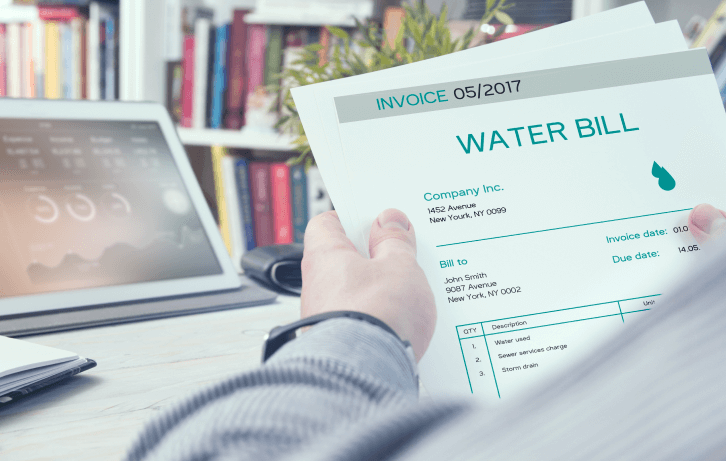Droplets of Support: Navigating the Low Income Household Water Assistance Program (LIHWAP)
In the pursuit of ensuring essential utilities for low-income households, the Low Income Household Water Assistance Program (LIHWAP) emerges as a crucial initiative. LIHWAP is designed to provide support to individuals and families facing challenges in affording water and wastewater services. This article aims to guide readers through the purpose, eligibility criteria, benefits, and application process of LIHWAP, offering valuable insights into how this program can be a lifeline for those navigating financial constraints related to water services.

Understanding the Purpose of LIHWAP:
Essential Water Services:
Focusing on Affordability: LIHWAP addresses the affordability of water and wastewater services,
recognizing water as a fundamental necessity for daily living.
Preventing Service Disconnections: The program aims to prevent service disconnections for eligible
households, ensuring access to clean and safe water.
Financial Assistance:
Relieving Financial Burden: LIHWAP provides financial assistance to alleviate the burden of
water-related expenses, allowing low-income households to maintain essential services.
Promoting Financial Stability: By supporting water affordability, LIHWAP contributes to the overall
financial stability of eligible households.
Eligibility Criteria for LIHWAP:
Income Limits:
Varied Guidelines: LIHWAP eligibility is often determined by household income, with specific guidelines
set by federal or state agencies.
Consideration of Household Size: Larger households may have higher income limits for eligibility.
Vulnerable Populations:
Focus on Vulnerable Groups: LIHWAP may prioritize vulnerable populations, including seniors, individuals
with disabilities, and families with young children.
Medical Conditions: Some programs consider medical conditions that may be exacerbated by a lack of
access to water.
Application Process for LIHWAP:
Local Service Providers:
Community Access Points: LIHWAP applications are typically processed through local service providers,
such as community action agencies or utility companies.
In-Person and Online Options: Applicants can choose to apply in person at local offices or utilize
online application platforms.
Documentation Requirements:
Proof of Income: Applicants must provide documentation of income, such as pay stubs or tax returns, to
verify eligibility.
Utility Bills: Submission of recent utility bills may be required to demonstrate the need for water
assistance.
Application Periods:
Seasonal Deadlines: LIHWAP programs often have specific application periods, and it's essential to be
aware of deadlines to ensure timely assistance.
Emergency Assistance: Some LIHWAP programs may offer emergency assistance beyond regular application
periods.
Benefits and Assistance Provided by LIHWAP:
Water Bill Payment Assistance:
Financial Support: LIHWAP provides financial assistance to help eligible households pay their water
bills.
Preventing Disconnections: The program aims to prevent water service disconnections due to non-payment.
Emergency Water Assistance:
Immediate Support: LIHWAP may offer emergency assistance to address immediate crises, such as imminent
water service shut-offs.
Crisis Intervention: This aspect of the program provides a safety net for households facing urgent
water-related issues.
Education and Outreach:
Promoting Water Conservation: LIHWAP programs often include education and outreach efforts to promote
water conservation and efficient usage.
Community Workshops: Workshops and informational sessions may be conducted to empower recipients with
knowledge on water-saving practices.
Accessing LIHWAP and Additional Resources:
Local Community Action Agencies:
Primary Administrators: Community Action Agencies are often primary administrators of LIHWAP programs,
serving as accessible points for information and assistance.
Community Outreach: These agencies conduct community outreach to raise awareness about LIHWAP.
State and Federal Agencies:
State-Level Programs: LIHWAP is typically administered at the state level, and individuals can access
information and apply through state social service or water utility offices.
Federal Programs: Some LIHWAP programs receive federal funding, and individuals may find resources and
support through federal agencies.
Utility Companies and Billing Offices:
Collaboration with Utilities: Utility companies and billing offices collaborate with LIHWAP to
facilitate access, processing applications, and ensuring seamless assistance.
Billing Support: Staff at utility companies may provide guidance on LIHWAP application processes and
required documentation.
The Low Income Household Water Assistance Program (LIHWAP) serves as a vital resource for individuals and families grappling with the challenge of affording water and wastewater services. By understanding its purpose, eligibility criteria, and the array of benefits it offers, eligible households can navigate financial constraints related to water services with greater ease. LIHWAP, like droplets of support, ensures that clean and safe water remains accessible to all, contributing to the well-being and dignity of those facing economic hardships.
